INTRODUCTION
On my first day in New Zealand, I completed a self-assessment provided by the Gilman Scholarship Program. It asked me to rate myself in areas like problem solving, adaptability, communication, openness, resilience, and confidence. Now, five months later, with my journey nearly complete, it’s time to retake the test! In this post, I share how I’ve changed this semester and attempt to answer why. To make this look more scientific than it is, I’m writing in the format I used for my semester-long geology project (which is now finally done!).
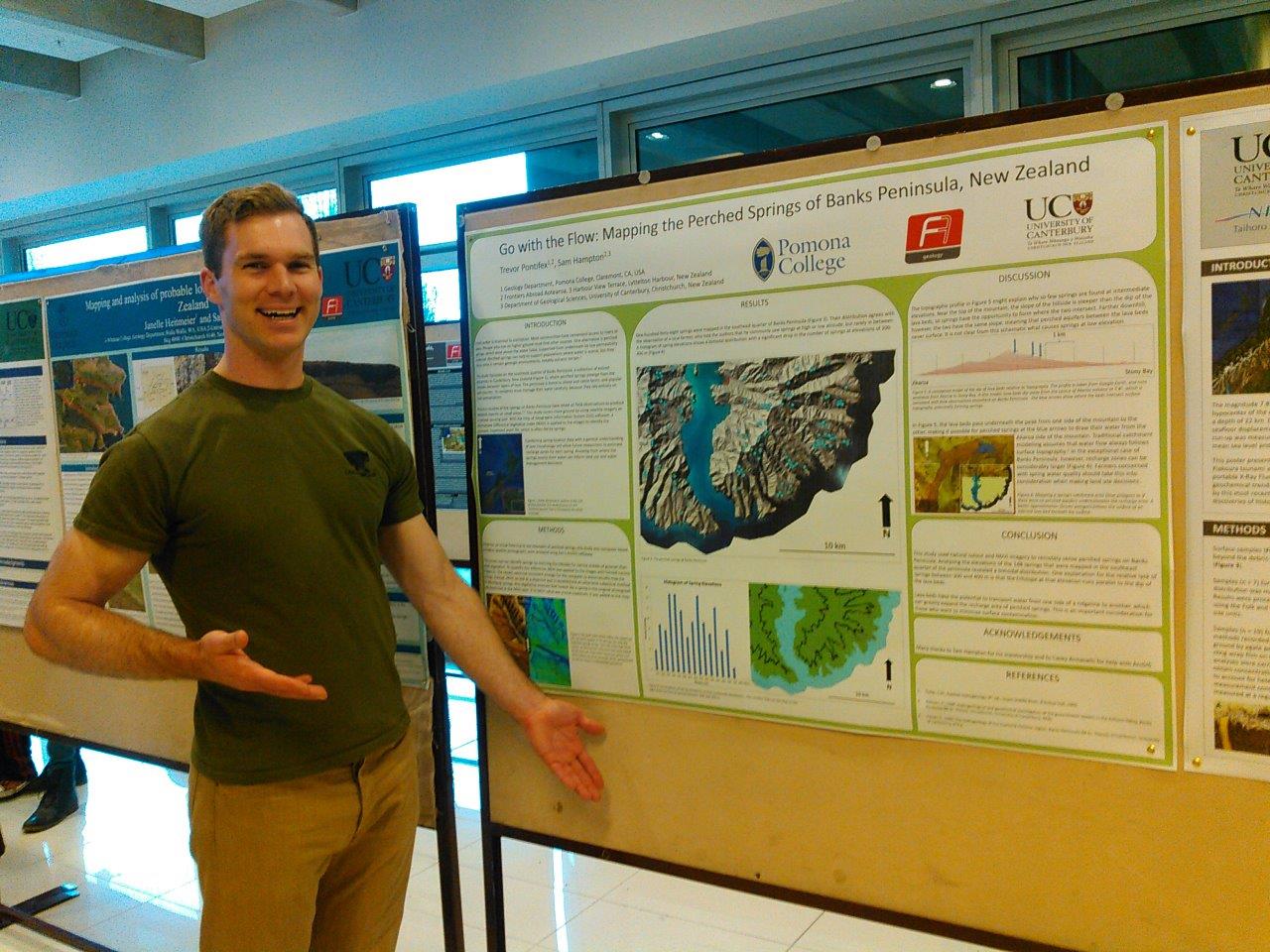
Since classes began in February, I’ve been working on a research project to explain groundwater flow on Banks Peninsula, New Zealand. Now it’s finished! I presented this poster to my professors and classmates.
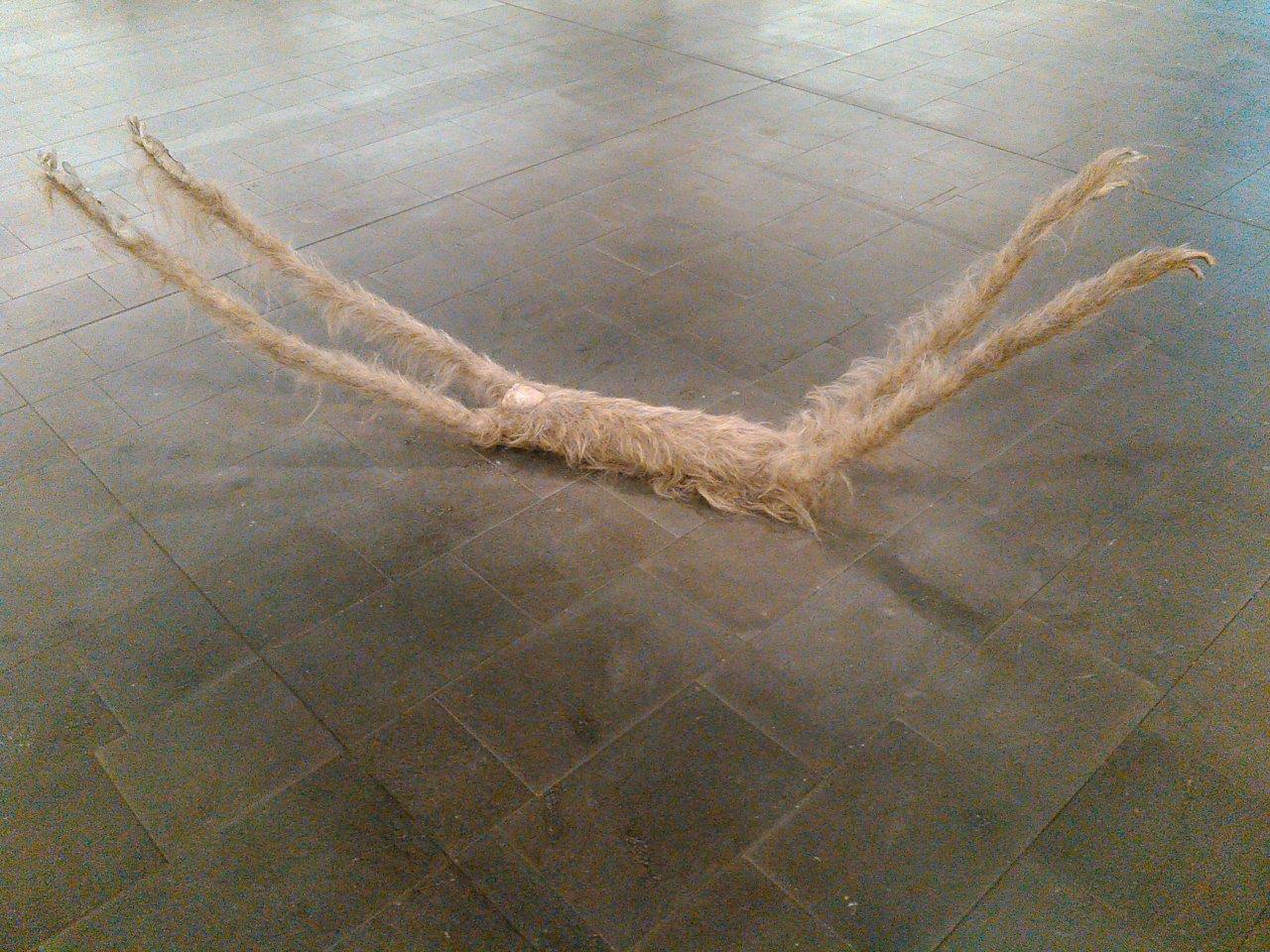
After spending 40 hours on homework in my final week of class, I was in need of a study break. A friend and I went to the Christchurch Art Gallery, where I felt an emotional connection to this sloth by Francis Upritchard.
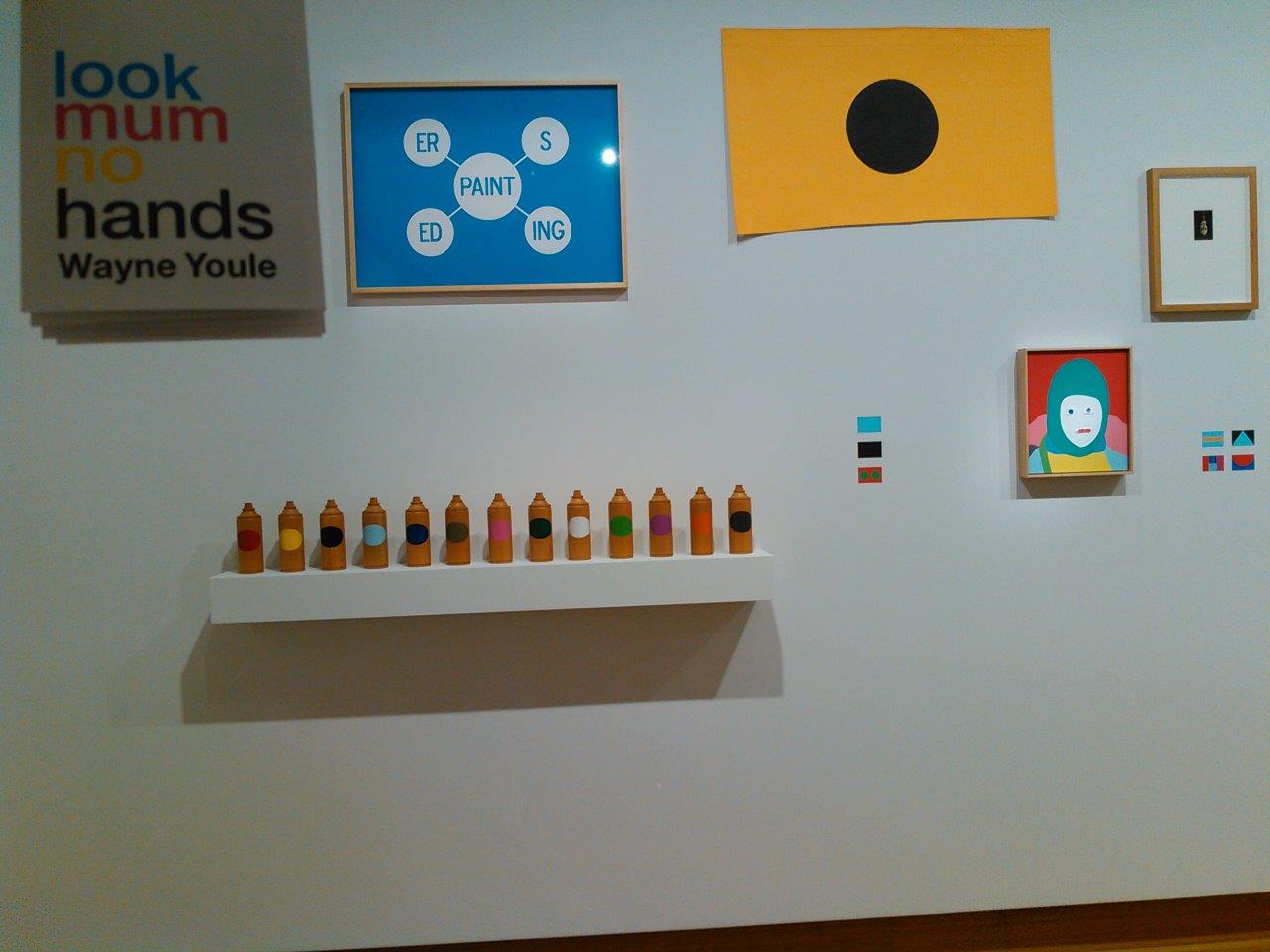
My favorite exhibit at the Christchurch Art Gallery was “Look Mum No Hands,” by Wayne Youle. It featured dozens of simple and colorful works like this one.
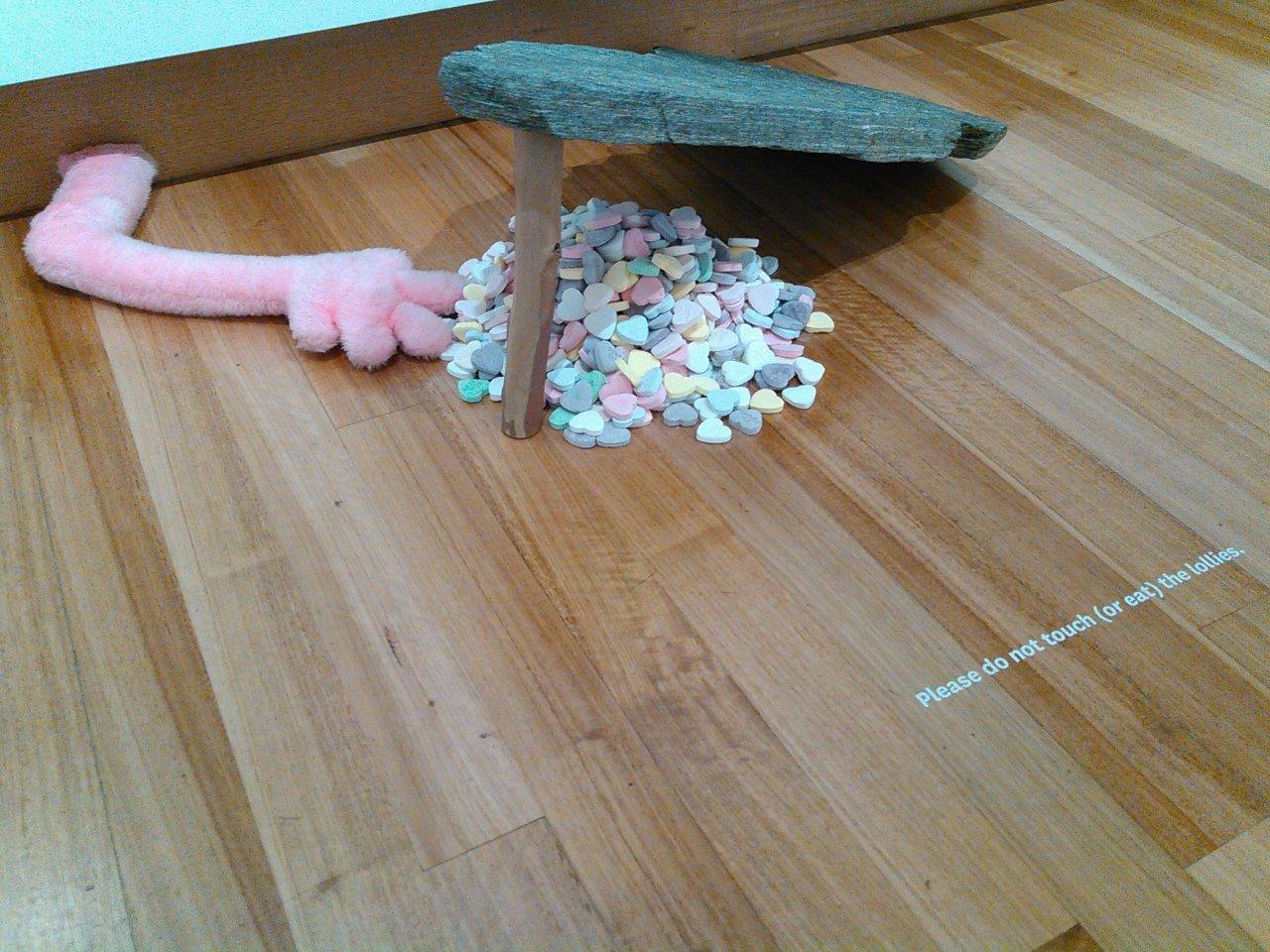
METHODS
The self-assessment consisted of 30 qualitative and 23 quantitative questions divided into different categories. The qualitative questions were yes or no: Do I think I have this quality, or do I not? The quantitative questions were similar, but ask me to rate my skills from 1 to 10, ten being most skilled.
I did not want to be influenced by the results of my initial self-assessment, so I did not compare answers until after I had retaken the test. When I did, I noticed that some categories in which I didn’t feel I had experienced any change had different scores. I think this was because I interpreted those questions differently the second time. To correct for this, I changed seven answers so that the after values matched the before values. Those are the only changes that I made.
RESULTS
Quantitative
During the initial self-assessment, I answered yes to 24 of 30 questions, indicating that I thought I had 80% of the skills, attributes, and qualities listed. During the final self-assessment, I answered yes to only 22 of the 30 questions. None of the yes answers were new. The two abilities or qualities I no longer felt I possessed were “Identify career objectives,” and “Self-confidence.”
Qualitative
Six skill scores decreased, six stayed the same, and 11 increased. The net change across all 23 questions was +5.
Most changes were slight. The only before and after results that differed by more than two points were both negative. “Ability to keep a sense of humor in stressful situations,” dropped from 6 to 2, while, “Ability to interact with and relate to many different people,” dropped from 8 to 5.
The other losses were more than offset by the many gains. Each of these scores increased by two: confronting problems, dealing with failure, taking risks, handling unfamiliar situations, establishing relationships, and awareness of personal strengths and weaknesses.
DISCUSSION
I’ve lost some confidence in my ability to identify career objectives. Engineering schools like the University of Canterbury are more practically minded than my liberal arts college back home. Studying here this semester has opened my mind to new careers I had not previously considered, like engineering geology. These new options make the path forward seem less clear.
I’ve also lost some confidence in myself. When I first took the assessment in January, I was content with minimal social interaction. As long as I got to Skype with my girlfriend, I was satisfied. After the breakup I wrote about in March, however, I realized how lacking my social life was. Being plunged into singleness reminded me how I struggle to make new connections. I’ve made progress since then, but there is still more work to be done.
One thing I gained from the breakup was a wealth of candid feedback from my ex-girlfriend. We were always good communicators, and we split up on good terms, so when I asked for feedback, she delivered. “Ability to keep a sense of humor in stressful situations,” dropped from 6 to 2 because it’s something that she specifically mentioned. When under pressure, I perform well, but I’m not cheerful. I failed to make that distinction when I took the initial assessment.
The other big drop was from 8 to 5 for, “Ability to interact with and relate to many different people.” Being immersed in a foreign culture for an extended period can be overstimulating. I often find I don’t have the mental energy to engage with New Zealanders as much as I’d like. Instead, I gravitate toward the familiar. For example, my closest friends here are the other Americans in my geology program. I suspect that our five weeks of bonding during field camp would have created close friendships regardless of cultural differences, but there’s no denying that coming from the same culture makes it easier.
Positive changes were smaller, but more numerous. The skills underlined in the following paragraph increased by two points each. These improvements came from experienced gained during the breakup and the recovery that followed.
I was forced to confront problems as the relationship unraveled. When nothing more could be done, I learned to deal with failure. Afterward, I hatched a plan to improve my social life, and took risks to make it happen. I handled unfamiliar situations that helped me to establish new relationships. Throughout it all, I reflected on events in my journal, which gave me more awareness of my strengths and weaknesses.
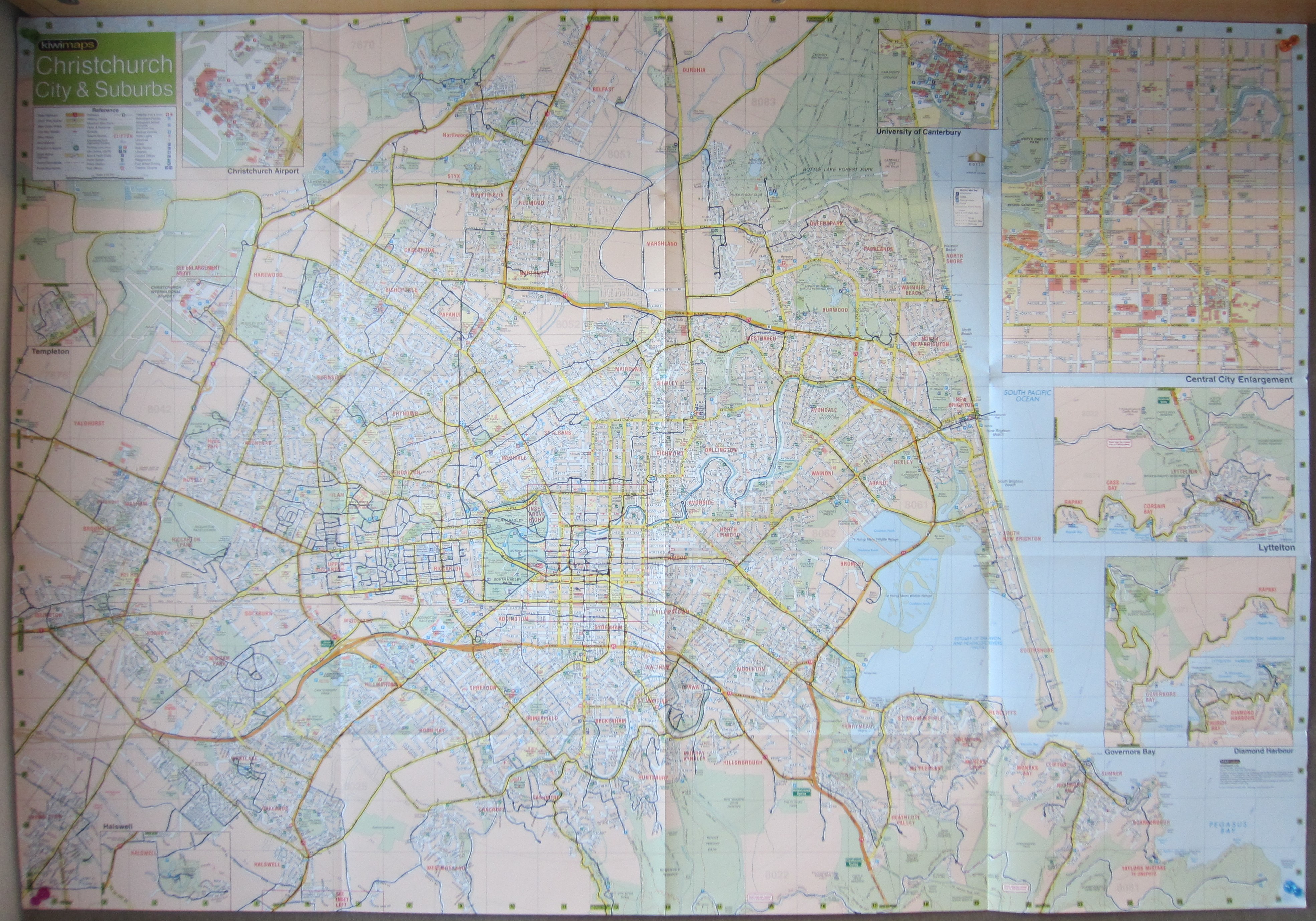
This map of Christchurch shows an area 15 miles wide. The permanent marker I’ve drawn on it shows that I’ve ridden my bike everywhere. This week I recorded my one-thousandth mile and sold my bicycle.
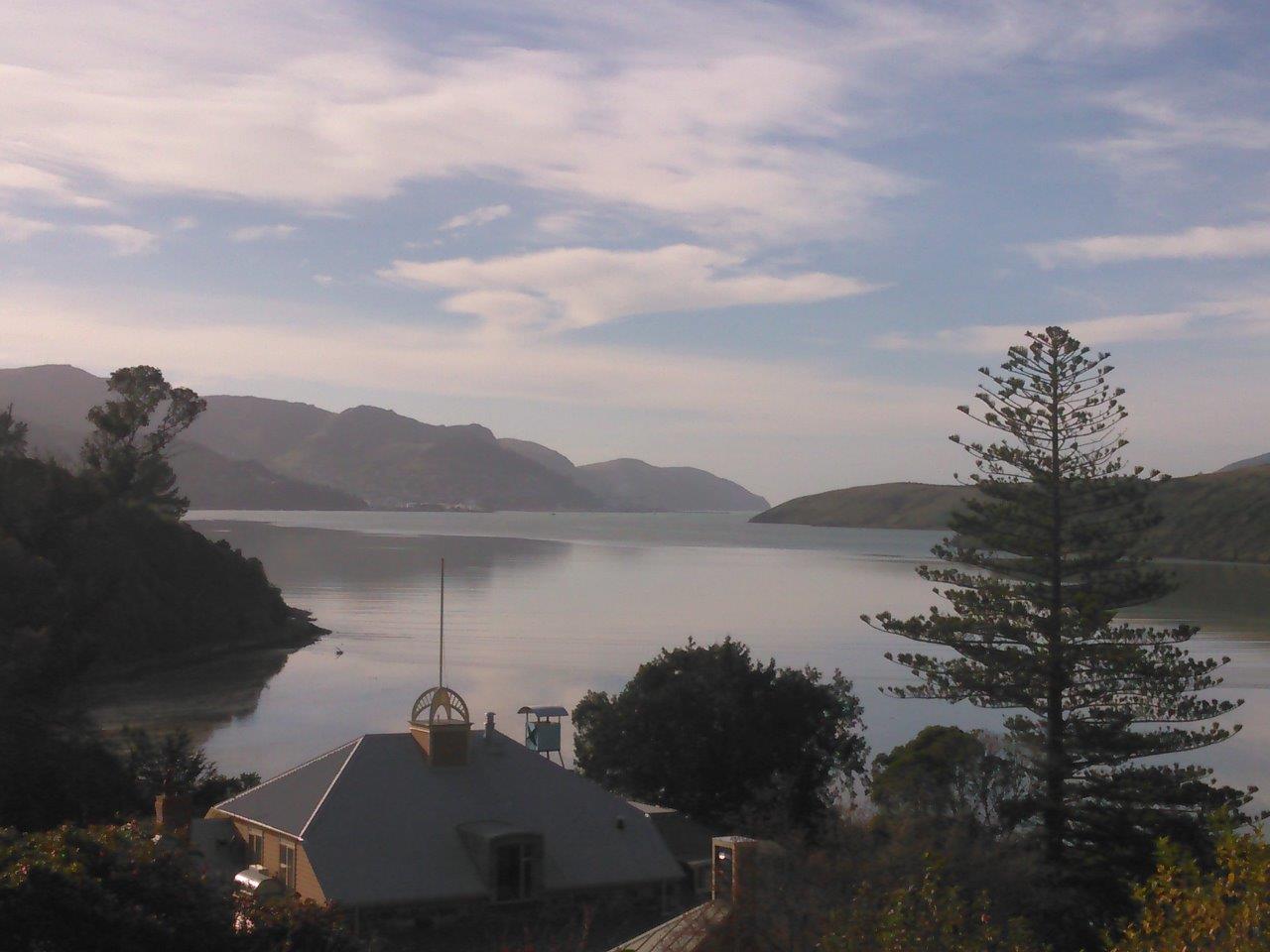
I saved my most ambitious bike ride for last: 50 miles with 6,000 feet of elevation gain! This view down the length of Lyttelton Harbour shows about half the route. I cycled to the peninsula on the right, then took a ferry across the harbor and headed up into the mountains. That night I ate a 4,000 calorie dinner.
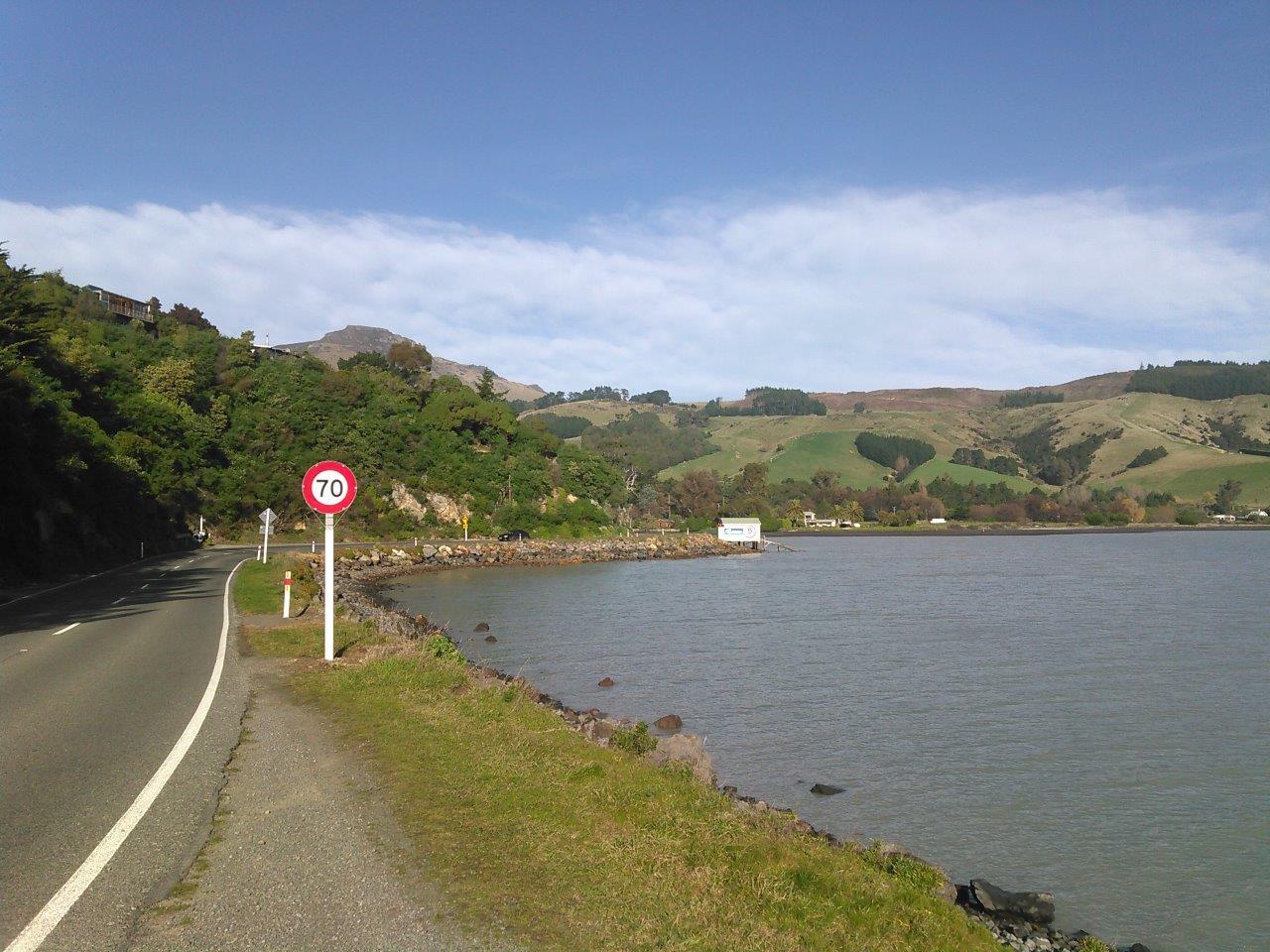
Looking back to where the previous photo was taken. This waterfront road was the most scenic part of my 50-mile ride.
CONCLUSION
Comparing scores from my initial and final self-assessments provides insight into the conflicts I’ve faced this semester and the ways in which I’ve grown from them.
The most drastic individual score changes were in the negative direction, but my capability has not diminished. It is only my perception that has changed. That some scores have decreased shows that I have grown wiser, and have a better understanding of my limitations.
Despite some decreases, the overall trend was positive. The improved skill scores were mostly the result of lessons learned from the end of one relationship and the beginnings of others.
These last five months in New Zealand have been a valuable experience. The skills I honed this semester will serve me well in my senior year at Pomona College and beyond.
For the time being, however, my focus is on the more immediate future, namely summer! After I take my last exam, I fly to Wellington for one final adventure, then home to California, where I look forward to some time off in perfect weather.
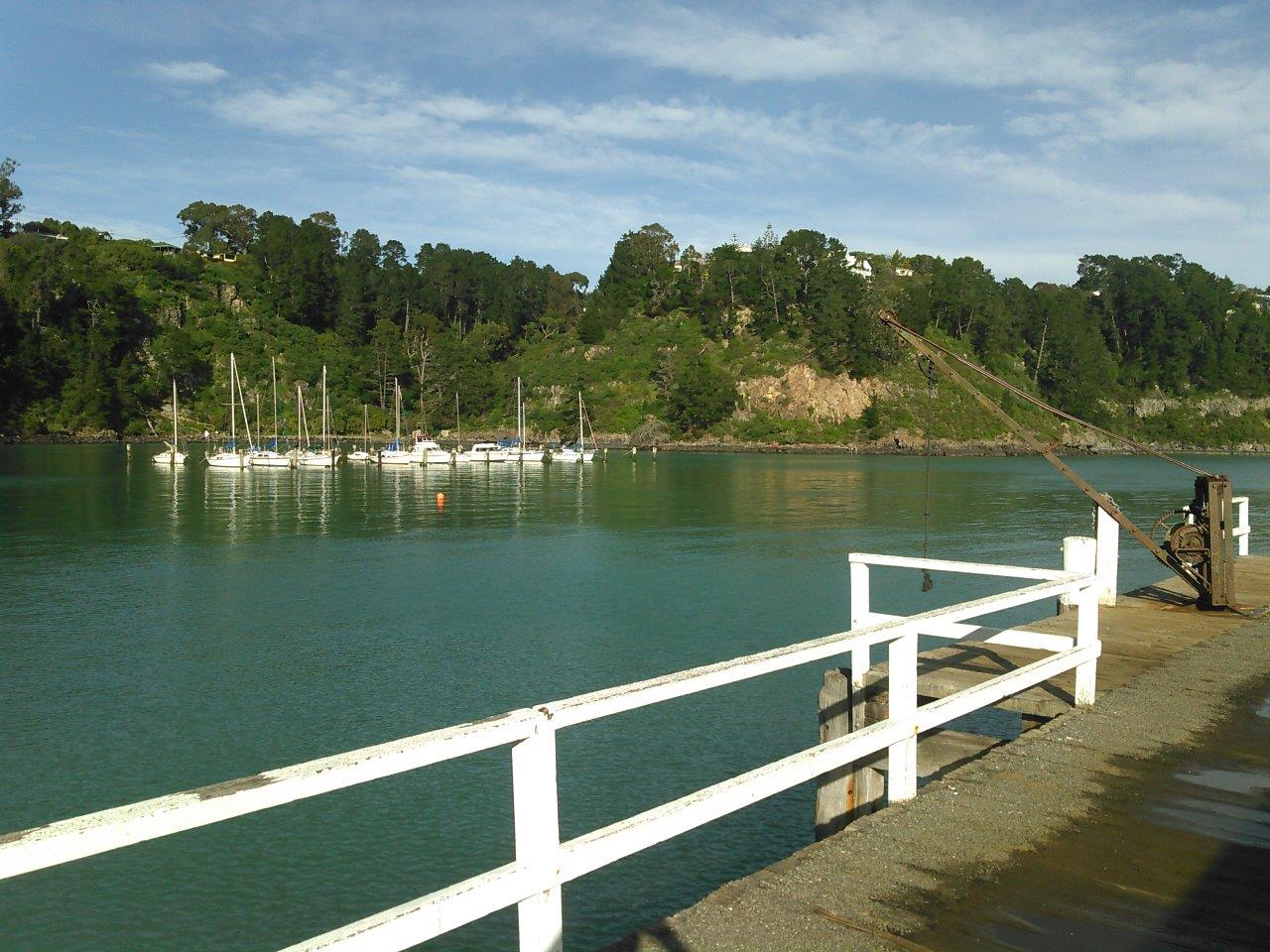
The wharf at Diamond Harbour, where I caught a ferry to Lyttelton.
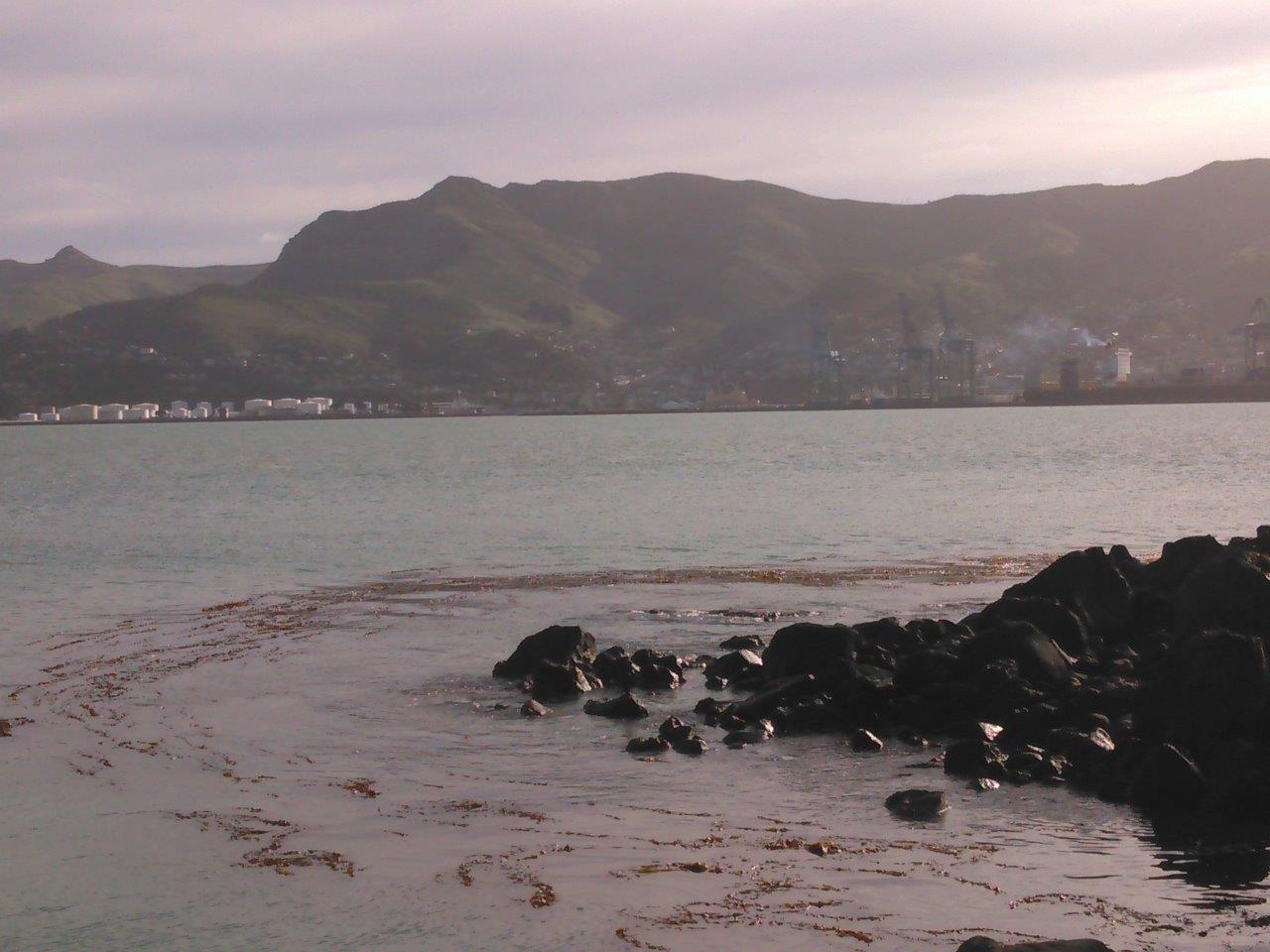
Looking north across Lyttelton Harbour toward the industrial town of Lyttelton.
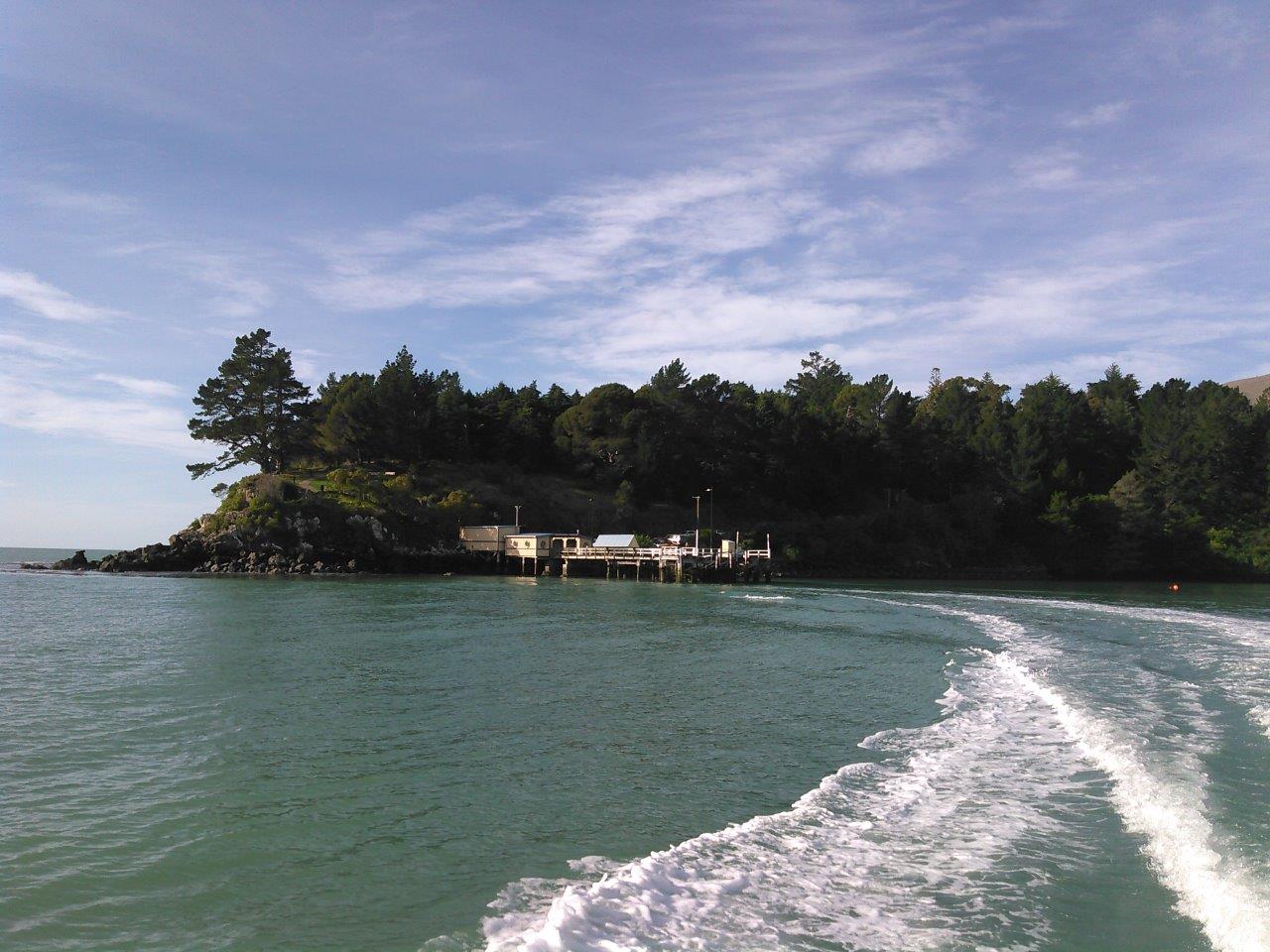
Pulling away from the wharf at Diamond Harbour.

Approaching Lyttelton from the water.

I expected Lyttelton to be a touristy town, but, as this photo shows, it’s thriving with industry. It is an international port with a lumber yard and dry dock. It’s just on the other side of the Port Hills from Christchurch, which does not have a deep water port. A tunnel connects the two.
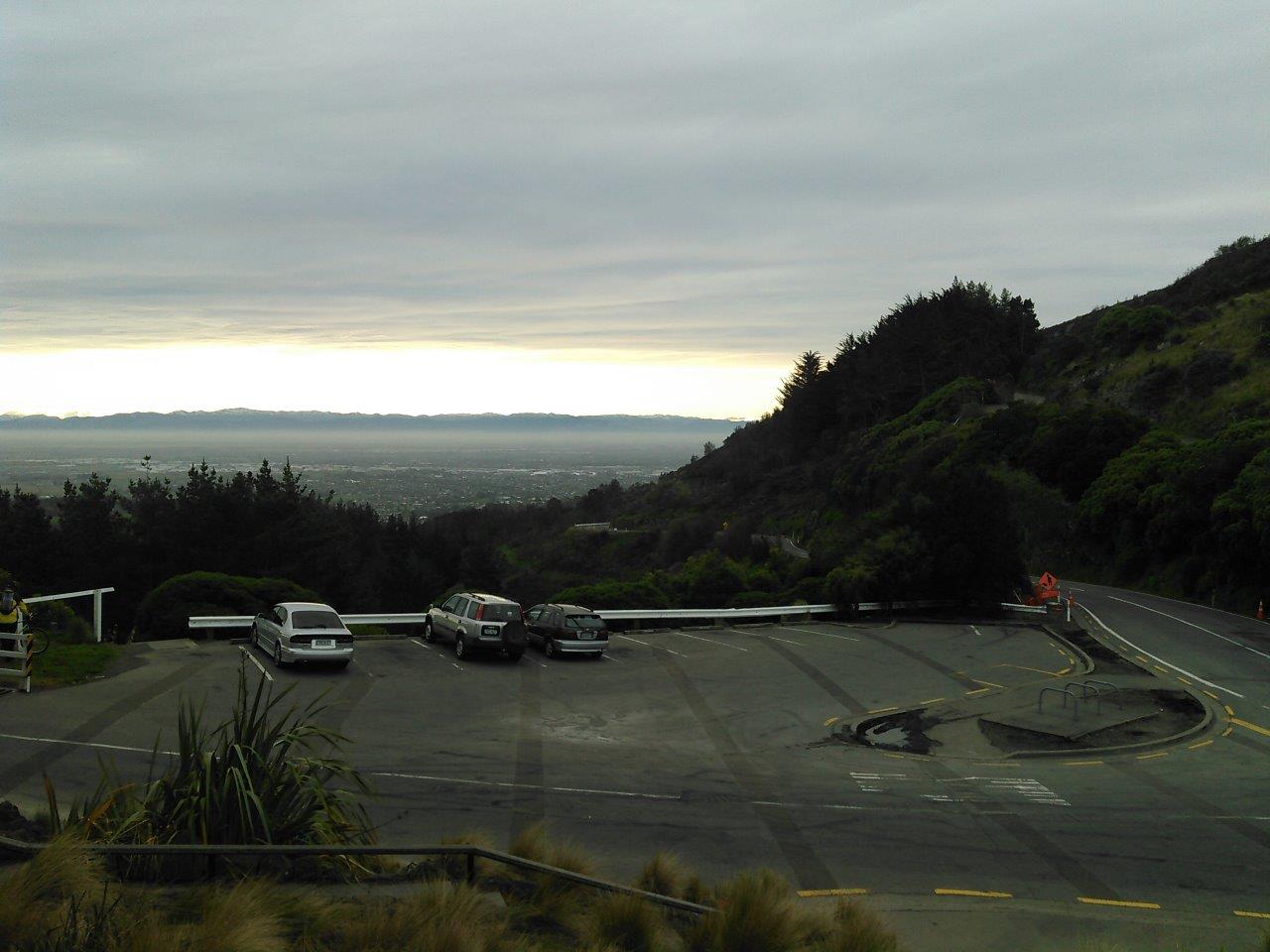
Looking north from the top of Dyers Pass. Christchurch sprawls out in the distance.



